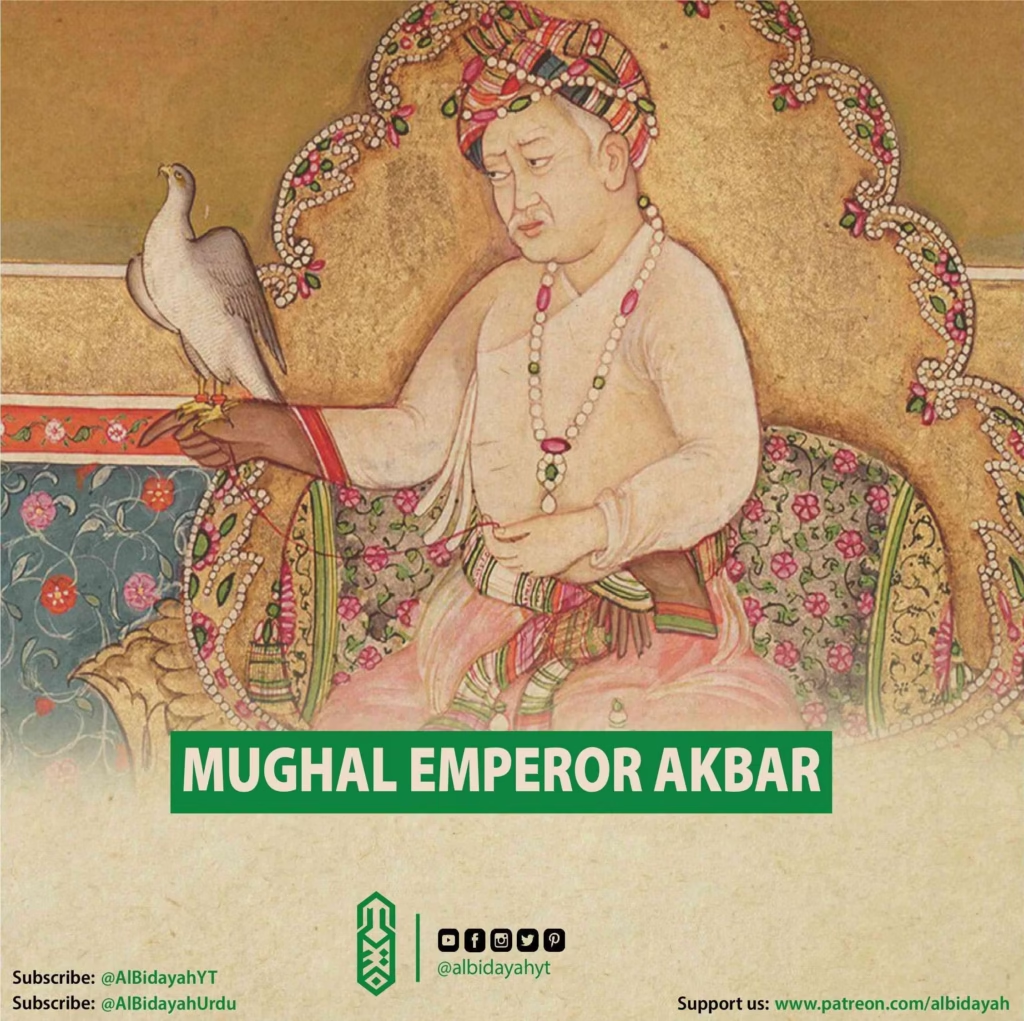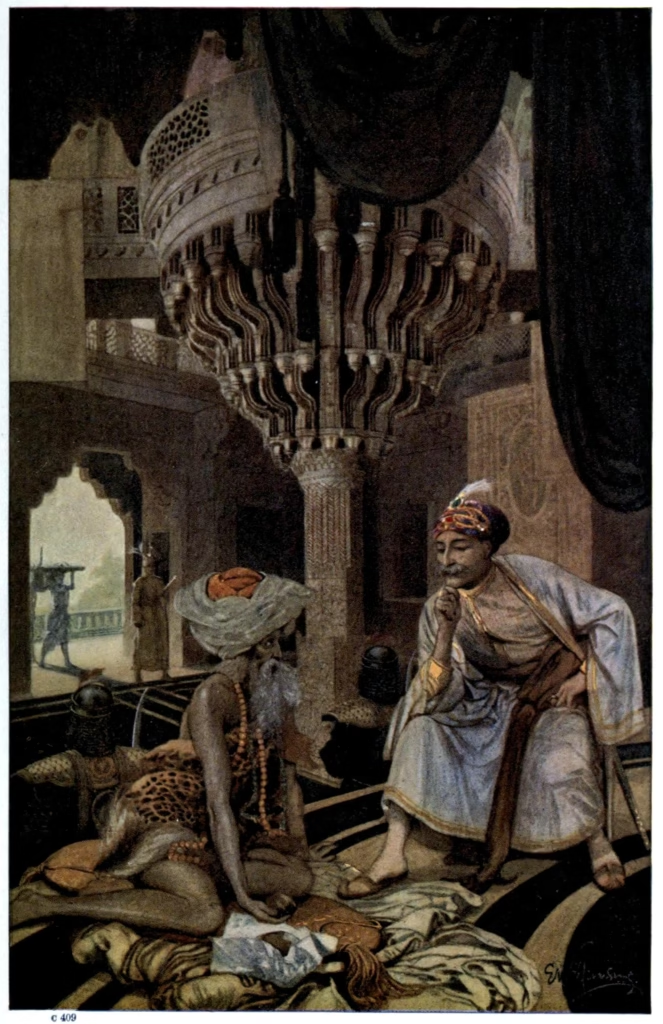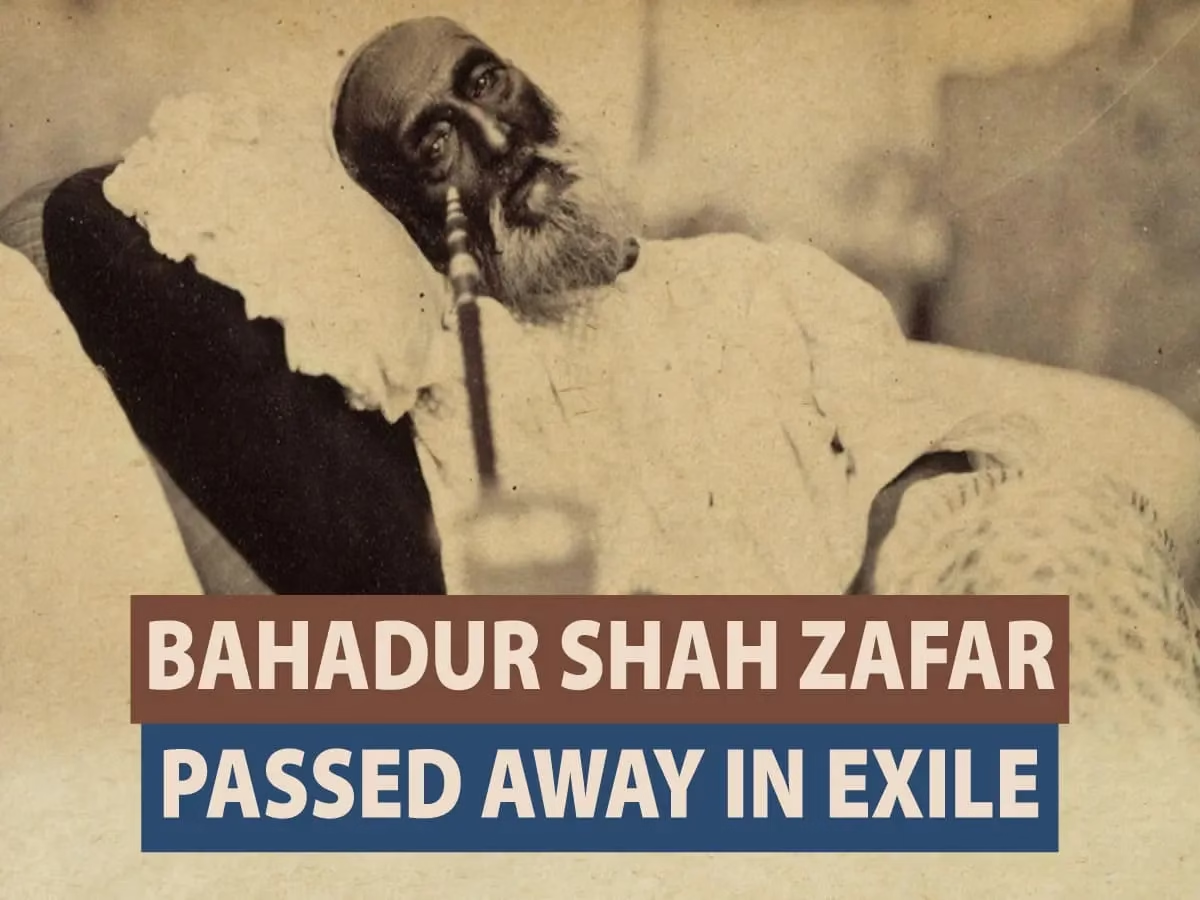On 15 October 1542 AD/CE, the third Mughal Emperor, Jalal-ud-din Muhammad Akbar, was born in Amarkot, Rajputana (present-day Umerkot, Pakistan). He ruled for 49 years, from 1556 to 1605 AD/CE, and is regarded as one of the greatest rulers of India.
Akbar was the son of Mughal Emperor Humayun and the grandson of Mughal Emperor Babur who founded the Mughal Empire of India in 1526 AD/CE. He was descended from the great Mongol military rulers Tamerlane and Genghis Khan. His father, Humayun, had already lost the kingdom won by Babar, and Akbar’s childhood was spent in exile.

See Also: Timurids Family Tree: From Timur to Babur
Akbar’s Ascension to the Throne
Following the power struggles after Sher Shah Suri’s death, Humayun recaptured Delhi in 1555 with the help of Persian allies. However, his triumph was short-lived as he died soon after. To ensure a smooth succession, Bairam Khan, Akbar’s guardian, concealed Humayun’s death until preparations were complete.
Following the chaos over the succession of Sher Shah Suri’s son Islam Shah, Humayun reconquered Delhi in 1555, leading an army partly provided by his Persian ally Tahmasp I. A few months later, Humayun died. Akbar’s guardian, Bairam Khan concealed the death in order to prepare for Akbar’s succession. Akbar succeeded Humayun on 14 February 1556, while in the midst of a war against Sikandar Shah to reclaim the Mughal throne.
In Kalanaur, Punjab, the 14-year-old Akbar was enthroned by Bairam Khan on a newly constructed platform, which still stands. He was proclaimed Shahanshah (Persian for “King of Kings”). Bairam Khan ruled on his behalf until he came of age.
Expansion and Diplomacy
Akbar had a strong personality that helped him grow his power and influence over his empire. He is often considered as the real founder of the Mughal Empire in India. He set himself to unite Hindu and Muslim India. To unify the vast Mughal state, Akbar established a centralised system of administration throughout his empire and adopted a policy of conciliating conquered rulers through marriage and diplomacy.

Akbar expanded the empire from its original territories, making extensive conquests to the west, east, and south. He successfully won the allegiance of the Rajputs. He demonstrated his shrewdness by marrying two Rajput princesses and giving Rajput princes positions of authority in his government. He established an efficient administration of what was a huge multi-credal empire.
Religious and Administrative Reforms
His interest in religion and philosophy, art and science is famous, but the distinguishing marks of his greatness were the questing intelligence and fearless judgment he consistently brought to bear upon the difficulties with which he was surrounded.
A large number of commentators believe that he was a great man but he also has his trenchant critics too. Right-wing Hindus revile him as just another Muslim invader, responsible for the death of many tens of thousands of their co-religionists, while the Muslims consider him as the traitor of Islam who founded a new faith called Din-i Ilahi.
See Also: Delhi Sultanate Family Tree
Legacy
Akbar’s legacy remains both celebrated and debated. Many historians regard him as a visionary ruler who transformed India, while critics, especially right-wing Hindu nationalists, see him as a foreign invader responsible for mass killings. On the other hand, some conservative Muslims criticize him for straying from orthodox Islam.


